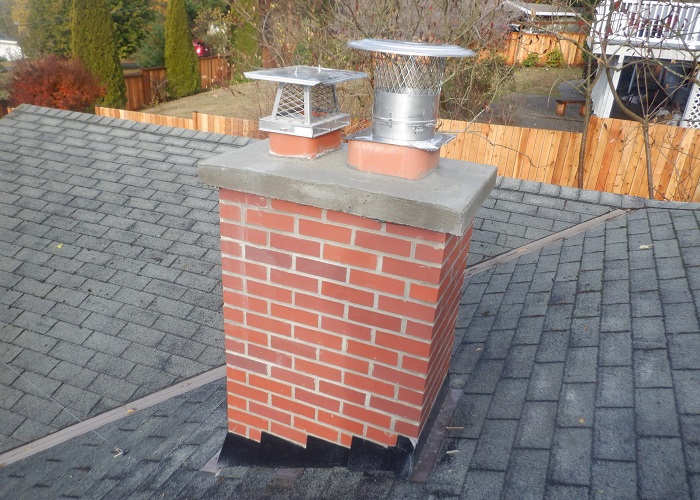In this blog post, we delve into the critical aspects of chimney repair, why it is necessary, and how it contributes to the overall health and safety of your home. We will explore the dangers of neglecting chimney maintenance and the benefits of regular inspections and timely repairs.
Why Is Chimney Repair N ecessary?
Chimney repair is necessary for several reasons. First and foremost, a chimney that is in need of repair can pose serious safety risks. Over time, the constant exposure to heat and weather elements can cause the chimney structure to deteriorate. Cracks, gaps, or loose bricks can develop, creating an increased risk of fires or carbon monoxide leaks. Regular chimney repair ensures that any potential hazards are addressed promptly, keeping your home and loved ones safe.
Secondly, chimney repair is essential for maintaining the efficiency of your fireplace or wood-burning stove. A damaged chimney can hinder the proper ventilation of smoke and gases, leading to poor combustion and decreased heating efficiency. This can result in increased energy consumption, higher utility bills, and reduced warmth in your home. By addressing chimney repair issues promptly, you can ensure that your fireplace or stove operates at its optimal performance, providing you with maximum heat output and energy efficiency.
Furthermore, chimney repair helps to preserve the overall structural integrity of your home. A compromised chimney can affect the stability of your roof, leading to leaks, water damage, and even structural collapse in extreme cases. Additionally, a crumbling chimney can also impact the aesthetic appeal of your home. By investing in chimney repair, you not only protect the safety and efficiency of your chimney system but also safeguard the value and appearance of your property.
What Happens When Chimney Repair Is Neglected?
When chimney repair is neglected, several consequences can arise. One of the most significant risks is the increased potential for chimney fires. A damaged chimney with cracks or gaps can allow heat and sparks to escape into the surrounding structure, such as the walls or roof. This can lead to the ignition of combustible materials and result in a dangerous fire that can quickly spread throughout the home. Additionally, neglected chimney repair can also lead to the accumulation of creosote, a highly flammable substance that builds up inside the chimney liner. The combination of creosote buildup and a damaged chimney can create a perfect storm for a devastating fire.
Another consequence of neglected chimney repair is the risk of carbon monoxide poisoning. Cracks or gaps in the chimney can allow the deadly gas to seep into the home instead of being properly vented outside. Carbon monoxide is odorless and colorless, making it extremely difficult to detect without a carbon monoxide alarm. Prolonged exposure to carbon monoxide can lead to serious health issues, including headaches, nausea, dizziness, and even death. Regular chimney repair and inspection are crucial to ensuring that the chimney system is functioning correctly and preventing the escape of carbon monoxide into living spaces.
Furthermore, neglecting chimney repair can result in costly and extensive damage to the home. A damaged chimney can allow water to penetrate the structure, leading to water stains, mold growth, and even structural deterioration. Water damage can affect not only the chimney but also the surrounding walls, ceilings, and roof. The longer chimney repair is neglected, the more extensive and expensive the damage can become. By addressing chimney repair needs promptly, homeowners can avoid the financial burden and inconvenience of major repairs or even chimney replacement.
“Chimney repair: An ounce of prevention is worth a pound of cure”
Taking a proactive approach to chimney repair can save homeowners from costly and potentially dangerous situations. As the saying goes, “An ounce of prevention is worth a pound of cure.” By regularly inspecting and addressing any issues with the chimney, homeowners can prevent small problems from escalating into larger, more expensive repairs. Investing in chimney maintenance and repair can ultimately save both money and peace of mind.
Regular chimney inspections by qualified professionals can identify any signs of damage or deterioration early on. This allows for prompt repairs to be made before they worsen and cause further complications. Simple repairs, such as fixing cracks or replacing damaged chimney caps, can prevent water intrusion, animal entry, and the deterioration of the chimney structure. By addressing these smaller issues in a timely manner, homeowners can avoid the need for extensive repairs or even chimney rebuilds in the future.
In addition to inspections and minor repairs, regular chimney cleaning is also a crucial preventive measure. The buildup of creosote, debris, and soot within the chimney can increase the risk of chimney fires and blockages. Regular cleaning removes these hazardous substances, ensuring proper airflow and reducing the potential for fire hazards. By investing in preventive chimney maintenance, homeowners can enjoy a safer and more efficient chimney system while minimizing the chances of costly repairs and potential dangers.
How Often Should Your Chimney Be Inspected and Repaired?
Regular chimney inspections and repairs are essential to maintain the safety and functionality of your chimney system. The frequency of these inspections and repairs depends on various factors, including the type of fuel used, the frequency of use, and the age of the chimney. As a general guideline, experts recommend having your chimney inspected at least once a year, preferably before the start of the heating season. This ensures that any potential issues are identified and addressed before they worsen.
For chimneys that are frequently used or those that burn wood, it is recommended to have inspections and cleanings more frequently, such as every six months. This is because wood-burning chimneys are more prone to creosote buildup, which can lead to chimney fires if not properly managed. Regular inspections help identify the level of creosote accumulation and determine if a cleaning is necessary.
In addition to regular inspections, it is crucial to address any necessary repairs promptly. Ignoring chimney issues can lead to more significant damage and potential safety hazards. Signs that your chimney may require repairs include cracks in the masonry, damaged chimney caps or crowns, loose bricks or mortar, and water leaks. If you notice any of these signs or suspect a problem with your chimney, it is advisable to schedule a professional inspection and repair as soon as possible.
In conclusion, chimney repair is not just about keeping your fireplace functional. It’s about ensuring the safety and well-being of your home and family. Regular inspections and timely repairs can save you from potentially catastrophic damages and costly repairs in the future. So, don’t ignore your chimney; give it the care it deserves.




